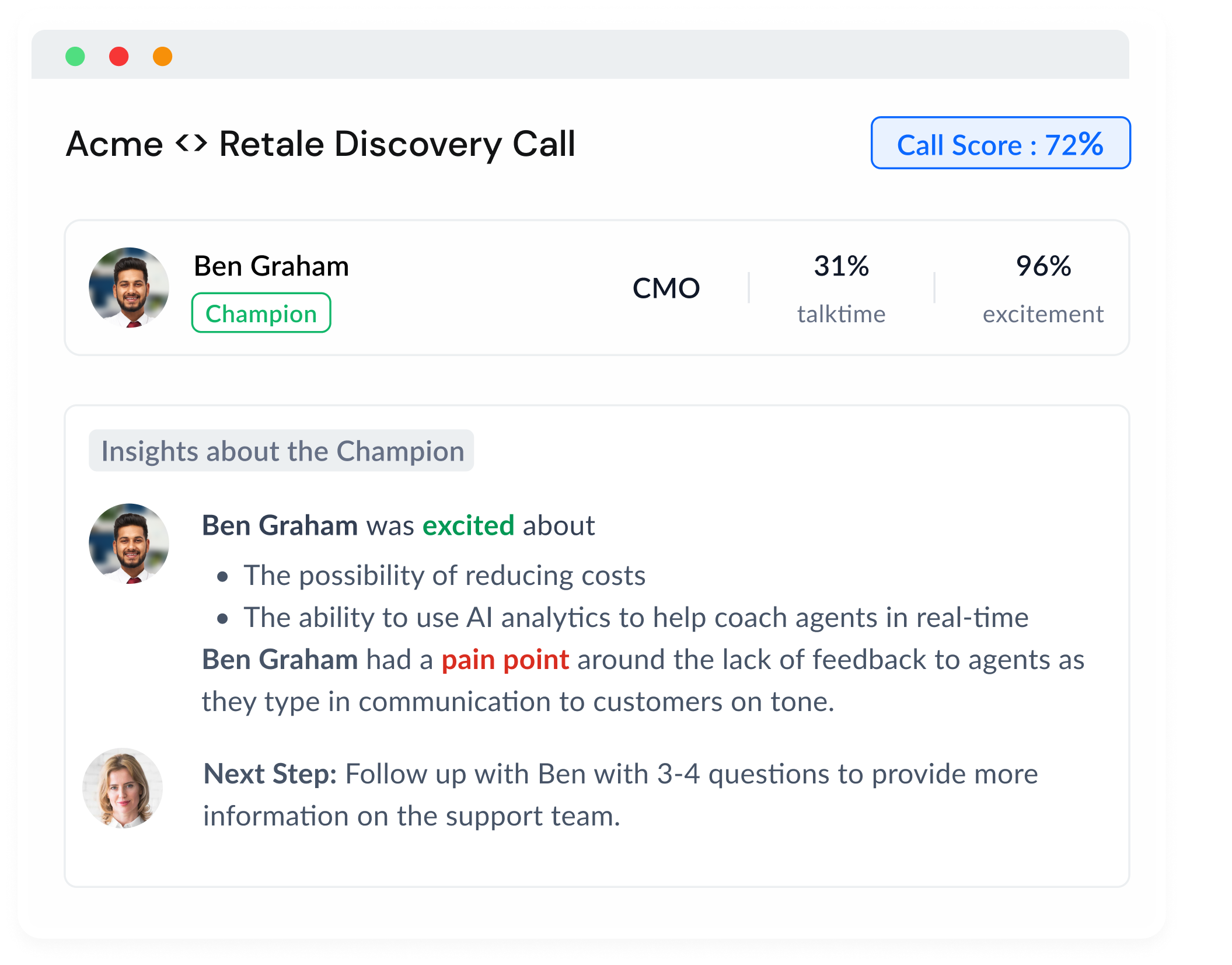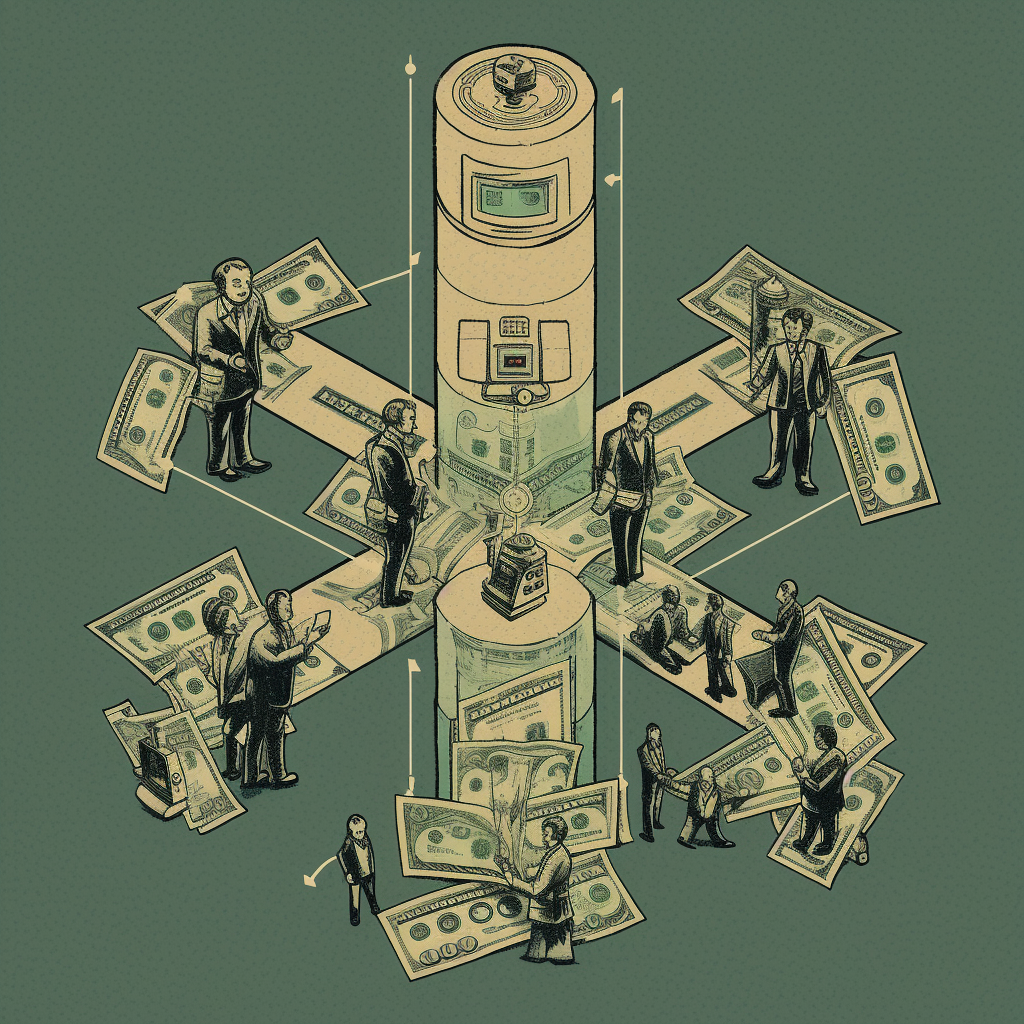Welcome to the great CRM showdown! In this corner, we have Zendesk Sell, the friendly contender ready to help small to medium-sized businesses stay organized and focused. And in the other corner, we have the heavyweight champion, Salesforce Sales Cloud, known for its power-packed features and flexibility to cater to businesses of all sizes. Now, the burning question is: Which CRM is right for your business?
As Robin Williams once said, "No matter what people tell you, words and ideas can change the world." In the realm of CRMs, the right system can truly change the way you manage your business, streamline operations, and boost sales growth. So, buckle up, and let's dive into a detailed comparison of Zendesk Sell and Salesforce Sales Cloud.
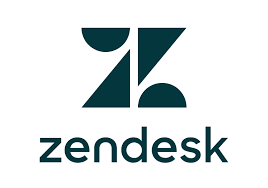
Ease of Use and Interface
Let's start by talking about the first impressions, because as we all know, first impressions last. Your CRM's interface is like a first date – you want it to be smooth, easy, and not too complicated. Otherwise, you may find yourself searching for the nearest exit.
When it comes to Zendesk Sell, the interface is clean, intuitive, and user-friendly. Think of it as the boy next door of CRMs - charming, approachable, and easy to get along with. Navigating through the system is a breeze, and you can find most features within a few clicks. Zendesk Sell is designed with simplicity in mind, making it an excellent choice for businesses that need a straightforward, easy-to-use CRM solution.
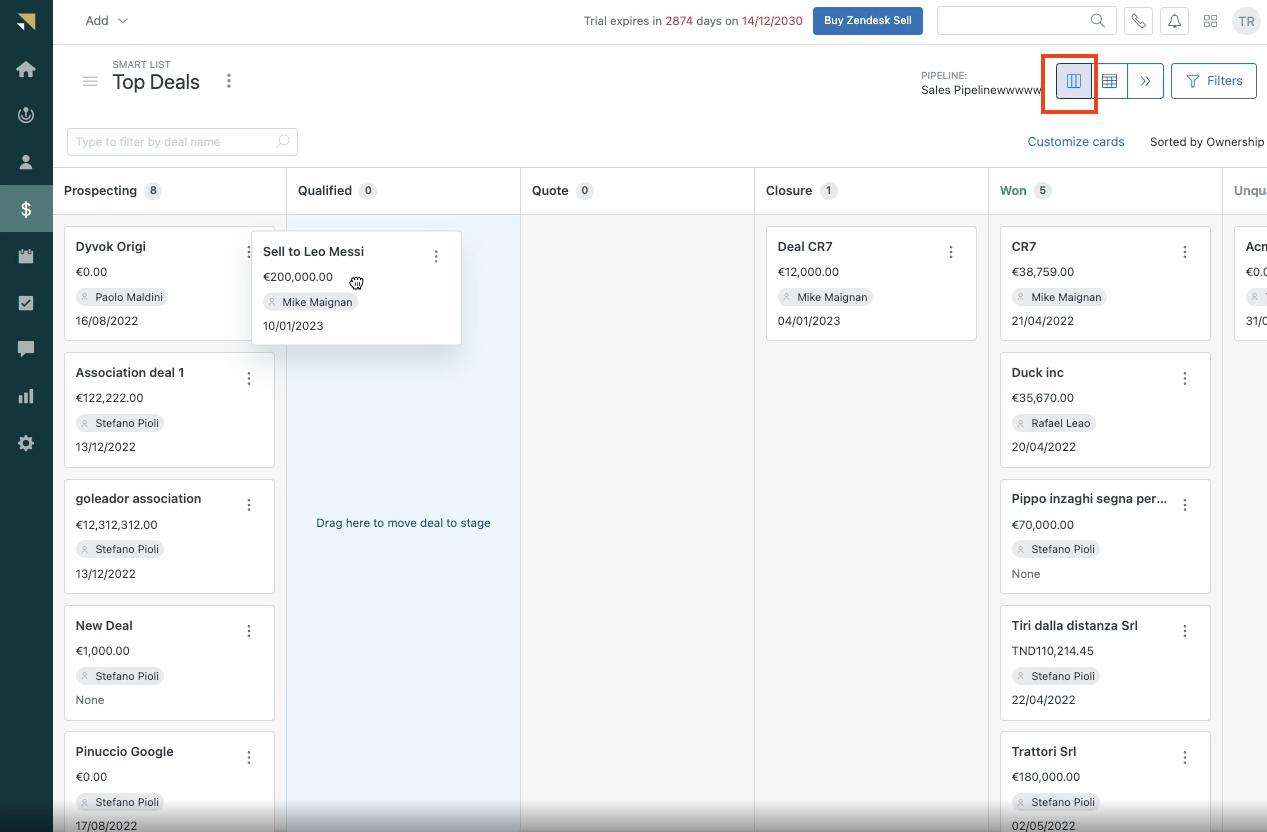
On the other hand, Salesforce Sales Cloud is more like the mysterious, brooding character in a romantic novel. It's packed with power and potential, but getting to know it might take some time. The interface is more complex than Zendesk Sell, and it might take a little longer for users to get accustomed to its many features and capabilities. However, once you've climbed the learning curve, you'll find that the Salesforce interface is highly customizable and offers a wealth of options to suit your business needs.
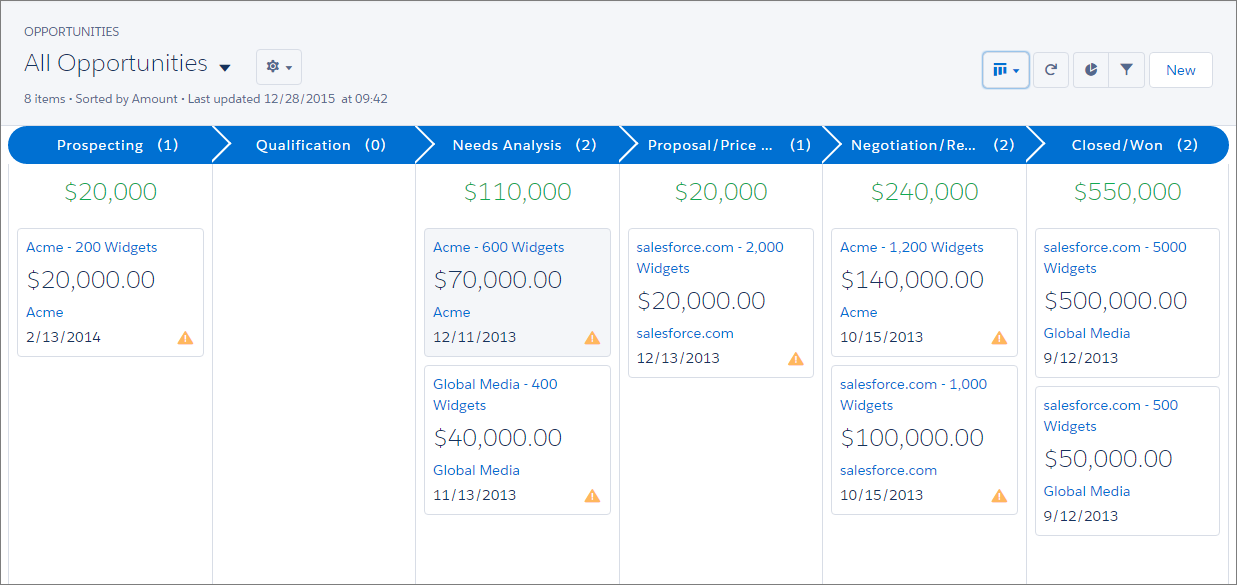
While both interfaces have their unique appeal, it's essential to consider which one aligns better with your team's preferences and technical capabilities. After all, no one wants a CRM that makes them feel like they're deciphering hieroglyphics on a daily basis.
Features and Functionality
When comparing CRMs, it's crucial to understand which features and functionalities can make or break your team's productivity. Think of CRM features like toppings on a pizza – you want a balance of flavors that satisfies your appetite, without overwhelming your taste buds.
Zendesk Sell Features
Zendesk Sell offers a well-rounded set of features, catering primarily to small and medium-sized businesses. Some of its key features include:
- Contact and deal management
- Customizable sales pipeline
- Email integration and tracking
- Task and appointment scheduling
- Reporting and analytics
- Mobile app for iOS and Android
Zendesk Sell's features are like a classic Margherita pizza - it has everything you need, without any unnecessary frills. It's straightforward and gets the job done, but if you're looking for more advanced features or deeper customization, you may find it a bit lacking.
💡 Related Read: Top Zendesk Alternatives On The Market Right Now
Salesforce Sales Cloud Features
Salesforce Sales Cloud, on the other hand, is like an all-you-can-eat pizza buffet – it offers a plethora of features designed to cater to businesses of all sizes. Some standout features include:
- Account and contact management
- Opportunity management and forecasting
- Customizable sales process
- Workflow automation and approvals
- Advanced reporting and analytics
- Integration with other Salesforce products and third-party apps
Salesforce Sales Cloud is like a fully-loaded pizza, piled high with all your favorite toppings. It offers more advanced features and deeper customization than Zendesk Sell, but it may also require more time and effort to set up and manage.
Integration and Ecosystem
In today's interconnected world, it's vital to have a CRM that plays well with others. Integration capabilities can significantly impact your team's efficiency and help you get the most out of your tech stack.
Zendesk Sell Integrations
Zendesk Sell offers a decent range of integrations with popular tools like G Suite, Mailchimp, and Zapier. The Zendesk App Marketplace has a curated selection of apps and integrations designed to enhance your CRM experience.
While Zendesk Sell doesn't have as extensive an ecosystem as Salesforce, it still covers the essential integrations that most small to medium-sized businesses would need.
Salesforce Sales Cloud Integrations
Salesforce Sales Cloud boasts a vast ecosystem of integrations, thanks to the Salesforce AppExchange. With thousands of apps and integrations available, you can connect your CRM to virtually any tool or platform you can think of.
Salesforce's extensive ecosystem makes it a more versatile option, particularly for larger organizations that require more complex integrations and customizations.
Customer Support and Community
When you're investing in a CRM, it's important to consider the level of support and resources available to help you make the most of your investment. Let's take a look at what Zendesk and Salesforce have to offer in terms of customer support and community.
Zendesk Sell Support and Community
Zendesk Sell offers various support options, including email, chat, and phone support for paying customers. They also provide a comprehensive knowledge base, webinars, and a community forum where users can connect with their peers and share insights.
Zendesk's support options are solid, and their resources can help guide you through any issues or questions you might have. Just like a friendly pizza delivery guy, they're there to make sure you get what you need.
Salesforce Sales Cloud Support and Community
Salesforce Sales Cloud offers an extensive range of support options, including email, chat, and phone support depending on your subscription level. Salesforce's vast community of users, developers, and partners means you'll have access to a wealth of resources, including a comprehensive knowledge base, webinars, and community forums.
Salesforce's support and community resources are like a bustling pizzeria, where everyone gathers to share their tips and tricks for making the perfect pie. With Salesforce, you'll have plenty of guidance to help you navigate and optimize your CRM experience.
Pricing and Plans
Finally, let's talk about the dough – the pricing of each CRM. While cost shouldn't be the sole deciding factor, it's an essential aspect to consider when comparing CRM solutions.
Zendesk Sell Pricing
Zendesk Sell offers four pricing tiers:
- Team: $19 per user per month (billed annually)
- Growth: $49 per user per month (billed annually)
- Professional: $99 per user per month (billed annually)
- Enterprise: starting at $150 per user per month (billed annually)
Zendesk Sell's pricing is straightforward and affordable, making it an attractive option for small to medium-sized businesses that don't require all the bells and whistles of more expensive CRM solutions.

Salesforce Sales Cloud Pricing
Salesforce Sales Cloud offers four pricing tiers:
- Essentials: $25 per user per month (billed annually)
- Professional: $75 per user per month (billed annually)
- Enterprise: $150 per user per month (billed annually)
- Unlimited: $300 per user per month (billed annually)
Salesforce Sales Cloud's pricing can be more expensive than Zendesk Sell, especially as you move up the tiers. However, the higher pricing comes with more advanced features and customization options, making it a suitable choice for larger organizations or those with more complex needs.
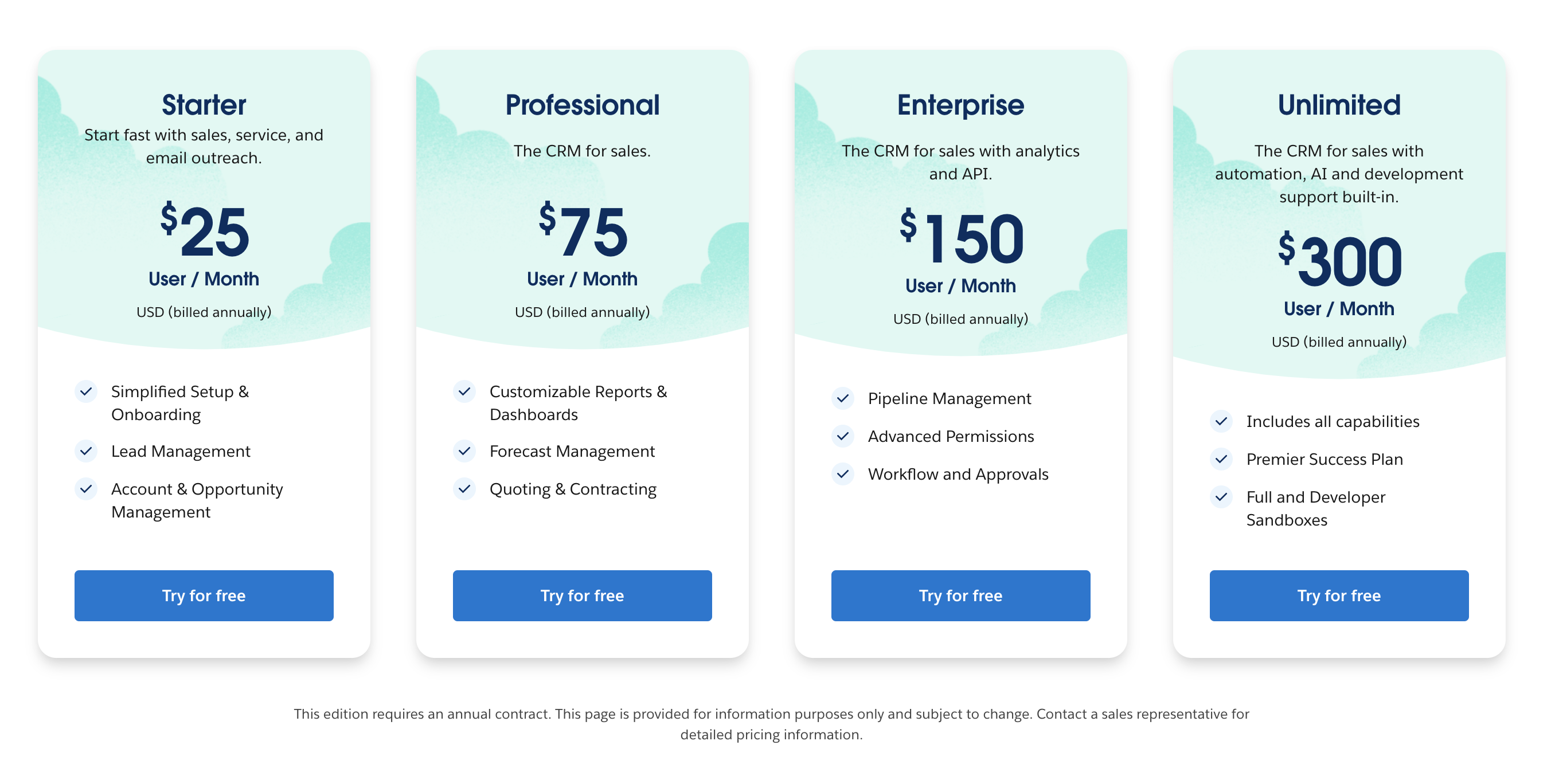
Making the Right Decision for Your Business
So, now that we've explored the key differences between Zendesk Sell and Salesforce Sales Cloud, it's time to decide which CRM is right for your business. To help you make an informed decision, let's briefly recap their strengths and weaknesses.
Zendesk Sell
Strengths:
- User-friendly interface
- Straightforward pricing and affordable plans
- Focus on sales-specific functionality
- Good support and community resources
Weaknesses:
- Less advanced features compared to Salesforce Sales Cloud
- Limited customization options
- Not as scalable for larger enterprises
Salesforce Sales Cloud
Strengths:
- Powerful, feature-rich CRM platform
- Highly customizable and scalable
- Wide range of integrations
- Extensive support and community resources
Weaknesses:
- Steeper learning curve
- More expensive pricing tiers
- Can be overwhelming for smaller businesses
To sum it up, Zendesk Sell is an excellent option for smaller businesses or those just starting with CRM, thanks to its user-friendly interface, straightforward pricing, and focus on sales-specific functionality. If you're looking for a simple, affordable solution to manage your sales pipeline, Zendesk Sell is a solid choice.
On the other hand, Salesforce Sales Cloud is a powerhouse CRM platform that offers a wide range of advanced features, customization options, and scalability. If you're a larger organization or require more sophisticated functionality, Salesforce Sales Cloud is likely the better option.
Conclusion
Comparing Zendesk Sell and Salesforce Sales Cloud is like comparing a cozy neighborhood pizza joint with a fancy Italian restaurant – both have their unique charms and strengths. Ultimately, the choice between Zendesk Sell and Salesforce Sales Cloud will depend on your business's specific needs, budget, and preferences.
So, take some time to evaluate each CRM system's pros and cons, consider what features and functionality are most important for your business, and make a decision that suits your taste. After all, it's not just about the pizza; it's about the experience and satisfaction that come with it.
PS: Adding notes to the CRM system after every sales conversation is hard. If you miss adding the notes, your manager gets frustrated during deal reviews, and you have less data to prepare before your next conversation or follow-up message.
Sybill automates this for you. It captures the essence of a call, and automatically pushes call notes/summaries with the action items, interest points, and pain points of each prospect into their record. In fact, it also captures their weekend plans and pet peeves if that’s what they mentioned during the conversation - so that you can build rapport faster and keep the relationship going. Sybill integrates with Salesforce out of the box.
If your organization uses Zendesk Sell and is interested in exploring Sybill for your needs, let’s chat. We can potentially build a custom Zendesk Sell integration for you.
Check us out at https://www.sybill.ai/magic-summary.
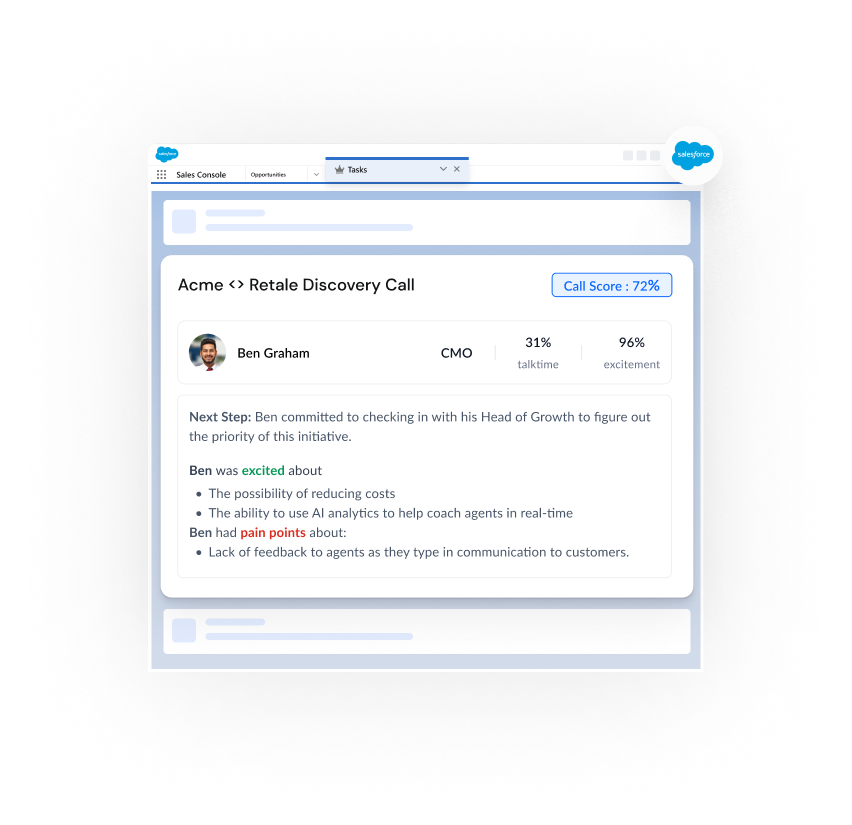













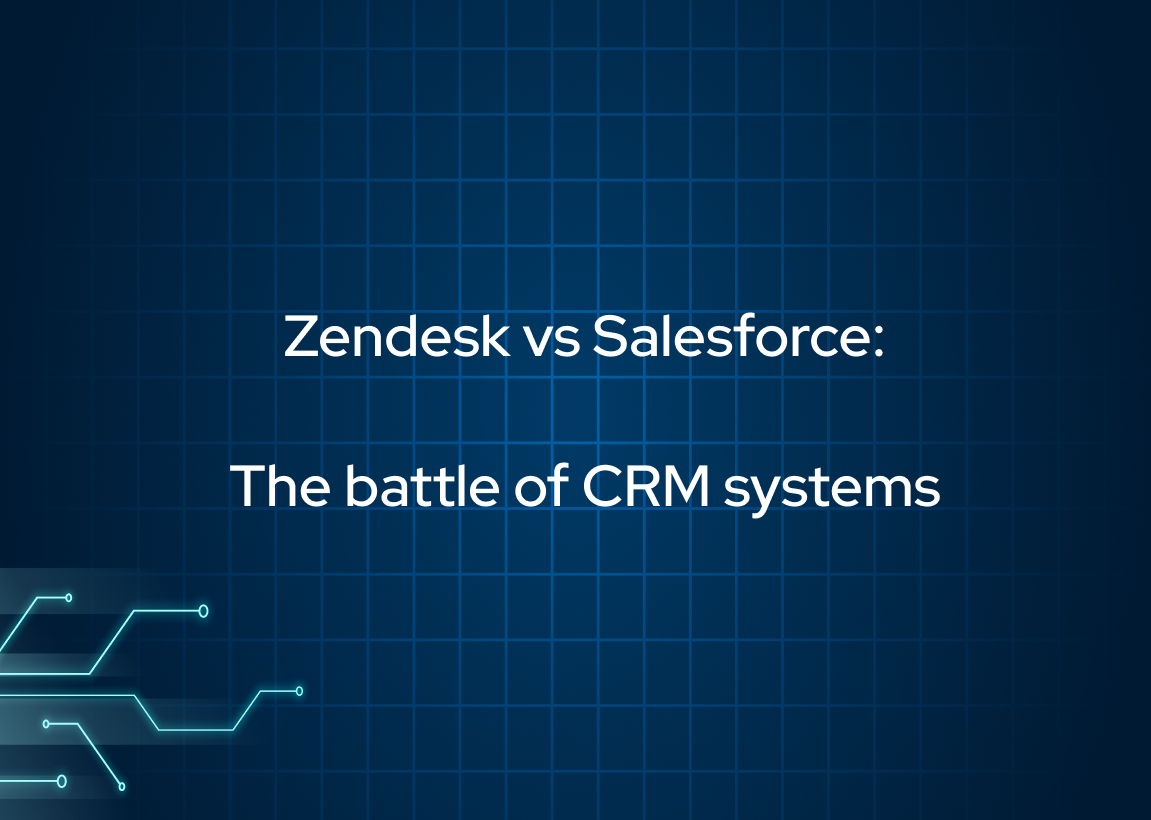

.png)
